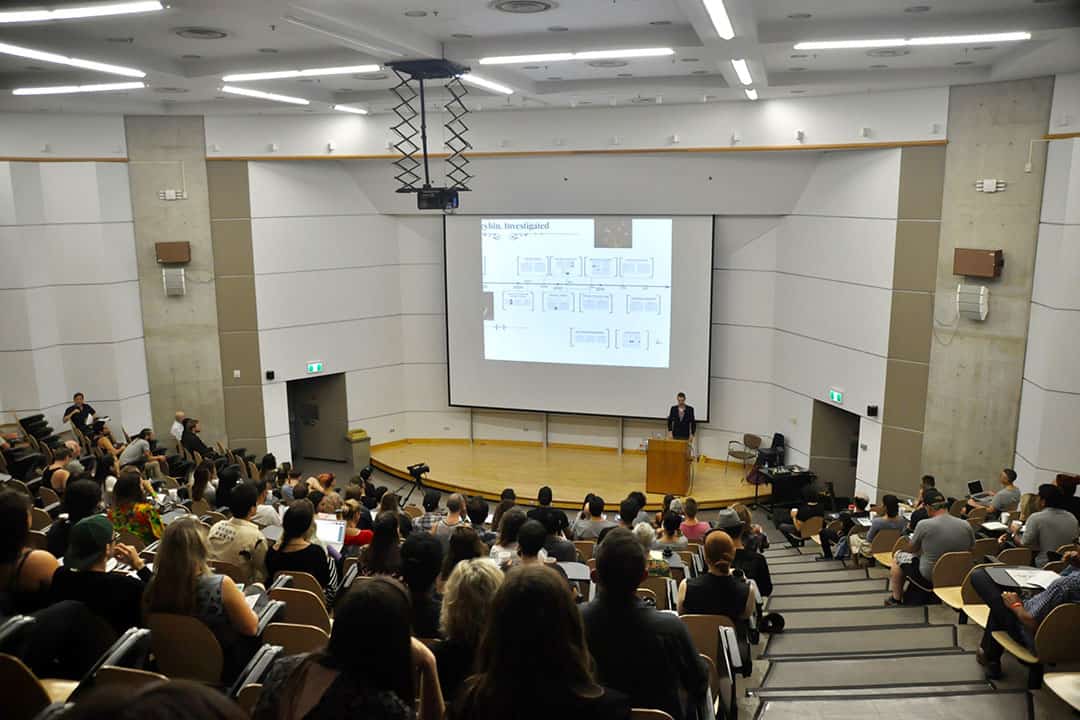Contrary to the prevailing Nixonian portrayal of drugs as the last century’s public enemy number one, this decade has seen a massive increase in the public acceptance of drugs as therapeutic agents.
This can be largely attributed to groundbreaking research coming out of neuroscience and psychiatry which seem to suggest an immense therapeutic potential for these drugs beyond previous estimation. The rise of national and international groups that aim to promote these findings have also contributed to this increasingly widespread acceptance.
One such group is the U of T chapter of Canadian Students for Sensible Drug Policy (CSSDP UofT), who organized this year’s Mapping the Mind with Mushrooms conference on September 23. This is an annual event that allows general audiences to learn more about the latest findings on the therapeutic usage of psychedelics.
The event organizer, Daniel Grieg, said that one of the main goals of CSSDP is to present youth voices at the policy level so that they can be more involved. According to Grieg, most politicians favouring strict drug control claim that it is for the benefit of the youth, but they rarely ever take into account what the youth actually have to say. Last year, a delegation of the group attended the United Nations General Assembly’s special session on drug policy, where they had a representative on a community roundtable.
Grieg stated that people are going to do drugs whether the law likes it or not, therefore, the policy should be approached from a perspective that is supportive and rehabilitative rather than punitive. CSSDP UofT hosts several lectures and events throughout the years supporting this view.
Dr. Jean-Marc Moncalvo, an Associate Professor in the Department of Ecology and Evolutionary Biology at U of T and the Senior Curator of Mycology in the Department of Natural History at the Royal Ontario Museum, spoke about the relationship that fungi have with humans and other animals at the conference. His childhood involved regularly picking mushrooms in the Swiss Alps, eventually leading him to pursue a thesis in mycology at the University of Lausanne in Switzerland.
When asked about how drug policy should be approached by governments, Moncalvo said, “Well, this is a social issue which has historical roots. Not all societies are the same. This is a dominantly Western society of modern war and various money making machines. Why alcohol and not psilocybin? I think the drug policy of governments currently is a bit absurd.”
Speakers also included John Vervaeke and Anderson Todd, the Director and Assistant Director of U of T’s Wisdom and Consciousness Lab, respectively. The lab studies the relationship between various altered states of consciousness and the cultivation of wisdom that appends upon past research in the fields of psychology, neuroscience, and cognitive science.
The group ultimately wants to explore the connection between transcendental or mystical experiences and the meaning given to life, which may be taken for granted. According to Vervaeke, some of the historical drivers behind the prohibition of drugs are deeply questionable, and recent research is lending credence to support the view that policy needs to be changed significantly.
Psychotechnologies have the potential to help people both therapeutically and existentially. “No politician is talking about the meaning crisis. They are not devoting time, effort or attention to it and this is causing loneliness to become an epidemic; this is resulting in a severe mental health crisis that we are witnessing today.”
Todd stated that although the “war on drugs” in the U.S. was well over the top, the libertarian counter-movement that people are gravitating toward is equally impractical and dangerous. No researcher or expert is explicitly advocating a wide recreational usage en masse; rather, Todd believes science should strive to show that psychedelic drugs are not dangerous and can be valuable when used in a therapeutic setting.
“They are not toys; they are tools. A buzzsaw is not something that you let anybody play with, and so should you be with the usage of such drugs.”


